#10
BATA SHOE KENYA PLC
Bata Shoe Kenya stands as the foremost footwear manufacturer and distributor in Kenya and the wider East Africa region. With a rich history dating back to 1939, it is headquartered in Limuru Town, Kiambu County. Boasting a vast network, Bata operates more than 100 stores strategically distributed throughout the country.
Bata has embarked on a dedicated commitment to Environmental, Social, and Governance (ESG) principles within its operations. This strategic approach integrates sustainability, ethical business conduct, and responsible governance into its activities across the region.
Bata’s commitment to environmental sustainability in Africa underscores the company’s dedication to reducing its ecological footprint while thriving in the region. The footwear manufacturer seeks an equilibrium between economic objectives and environmental considerations when making decisions. It embraces ecologically compatible practices, technology, and methods to ensure responsible conduct in every aspect of its operations.
First and foremost, Bata places a significant focus on sustainable sourcing of raw materials. Its primary strategy involves procuring environmentally friendly raw materials, such as water-based adhesives, organic chemicals in leather production at the Tannery, and recyclable polyvinyl chloride (PVC) plastic compounds. This approach has successfully mitigated the harmful effects of hazardous materials, by-products, and final products on both people and the environment. Through these initiatives, Bata ensures a responsible and eco-conscious supply chain.
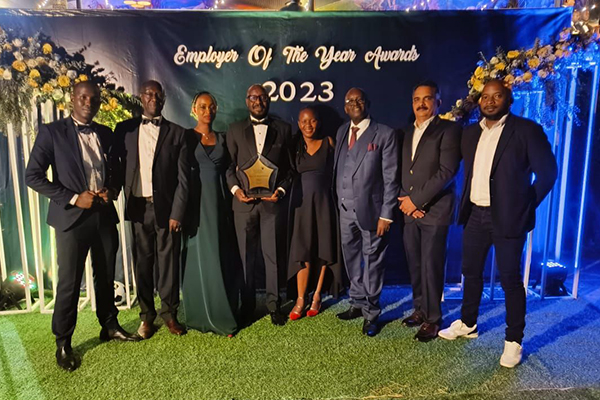
Bata also collaborates closely with local suppliers for deliveries and distribution, aiming to minimise transportation emissions. This strategic approach not only bolsters local economies but also significantly diminishes the carbon footprint linked to both sourcing raw materials and delivering products to the stores.
Bata has been actively embracing eco-friendly production methods, incorporating green practices into its operations. This includes the implementation of a biomass boiler for steam generation, replacing conventional furnace oil. The company also employs energy-efficient technologies, with consumption carefully monitored and measured in kilowatt hours (kWh). Additionally, Bata has installed over 1500 square metres of translucent sheets, harnessing natural lighting on the production floor.
Further, Bata has implemented cutting-edge servo motors in its hydraulic injection machines, resulting in significant energy savings of up to 50 percent during the shoe moulding process. By adopting these advancements, the company strives to enhance energy efficiency, decrease greenhouse gas (GHG) emissions, and transition toward renewable energy sources. Bat’s overarching goals include the extensive replacement of fossil fuels and the elimination of GHG emissions.
The footwear manufacturer actively promotes recycling and upcycling of materials and waste across its African markets. All plastics and plastic materials used by the company, predominantly PVC and ethylene-vinyl acetate (EVA) materials, are recyclable and are seamlessly reintegrated into the production process, leaving zero waste. In leather production, Bata creatively utilises leather trimmings and offcuts to craft small leather components such as wallets, handbags, safety gloves, and belts. Bata also spearheads shoe recycling programs and repurposes old shoes, effectively curbing the disposal of plastic waste into the environment and fostering a circular economy.
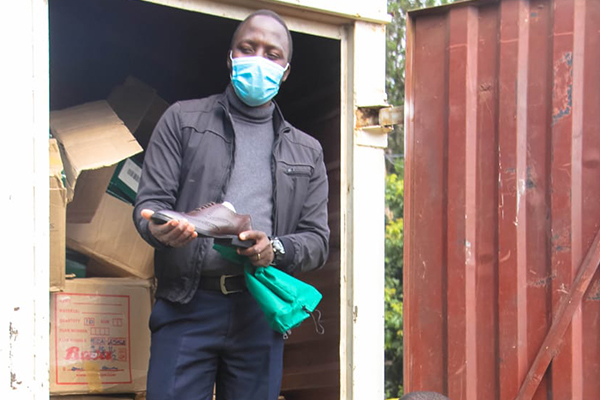
Moreover, Bata is actively involved in comprehensive water management practices, ensuring efficient usage and monitoring of water resources. The company meticulously tracks water usage by measuring withdrawal in cubic metres (M3) from installed boreholes. In collaboration with the Water Resources Management Authority (WARMA), Bata monitors the water table and assesses the quality of drinking and domestic water regularly.
Towards effluent treatment, Bata has installed a state-of-the-art plant for the treatment of tannery liquid wastes and any harmful contaminants. The plant proudly holds certification from the National Environmental Management Authority (NEMA) and undergoes routine audits, garnering certifications not only from NEMA but also from the Public Health department, SGS (formerly known as Société Générale de Surveillance), and receiving the approval of Kiambu County for the discharge of treated effluent water into the environment. This multi-faceted certification process also underscores Bata’s unwavering commitment to upholding the highest standards of corporate governance. Its main objective is 100 percent water use efficiency and recycling across all its business operations.
Bata recognises the importance of biodiversity in Africa and takes measures to protect local ecosystems. The manufacturer strategically engages in afforestation programs both within and beyond its operational boundaries, consistently achieving annual targets of planting over 5,000 trees for the past five years. Notably, the afforestation initiative undertaken within the Bata environment stands as a significant contributor, effectively reducing the company’s carbon footprint by more than 1,000 tonnes on an annual basis.
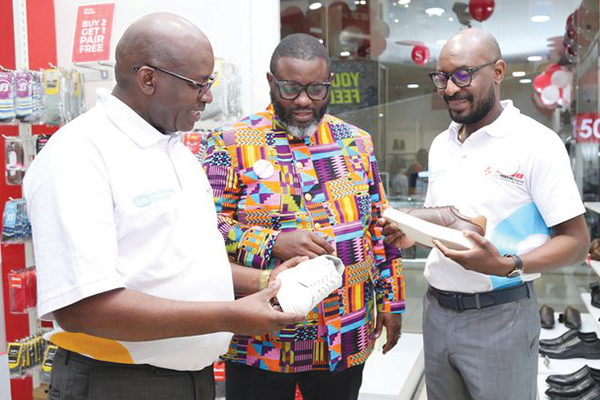
In its dedication to social responsibility, Bata actively engages in community aid programs, notably exemplified by the Bata Children’s Program (BCP), initiated in 2011. The BCP, fostering children’s potential through collaborations with local institutions, has positively impacted over 300,000 children since its inception. This influence is both direct, through employee volunteering, and indirect, via community donations. Anchored by the Bata Nursery School – an Early Childhood Development (ECD) centre offering free nursery education since 1973 – BCP serves the local community and employees’ children alike. Bata’s commitment to education extends through partnerships with various institutions, including annual mentorship and job shadow programs with Junior Achievement Kenya, mentorship for Starehe Girls Centre and Soila Maasai Girls, and the provision of scholastic materials to schools such as Kawangware and Olympic Primary.
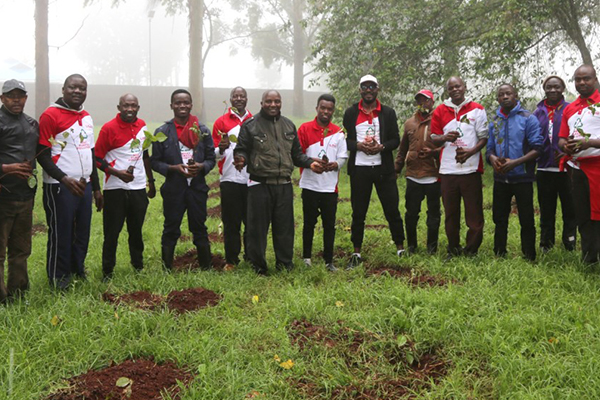
Further emphasising its dedication, Bata, during its Founder’s Day in 2023, revitalised its collaboration with SOS Children’s Villages, contributing USD 10,000 and supporting the ‘Youth Can’ Mentorship Program. Prioritising children’s wellbeing, Bata conducts free medical checkups, sanitary towel drives, and donates shoes. Amid the 2022 Food Crisis, Bata made a substantial KES 1,000,000 contribution. Aligned with the United Nations’ Sustainable Development Goals (UN SDGs), these initiatives address global challenges and local issues alike. Recently honoured with the top corporate award in the ‘Responsible Business Conduct’ category at the Employer of the Year Awards facilitated by the Federation of Kenya Employers (FKE), Bata’s commitment to community and societal development stands underscored.
To ensure equal opportunities for both men and women within the organisation, Bata regularly provides Equality, Diversity and Inclusion (EDI) training sessions, coupled with global conferences with external experts, which both raise awareness as well as uproot deep-rooted attitudes that often lead to systemic gender bias.
Bata prioritises robust governance, actively engaging its Board of Directors. The manufacturer upholds a fair and transparent approach, disseminating a comprehensive Code of Conduct to all employees, supported by third-party agreements and ethical guidelines. To promote openness, Bata implements a widely circulated Whistleblower policy, backed by a dedicated committee for addressing concerns.
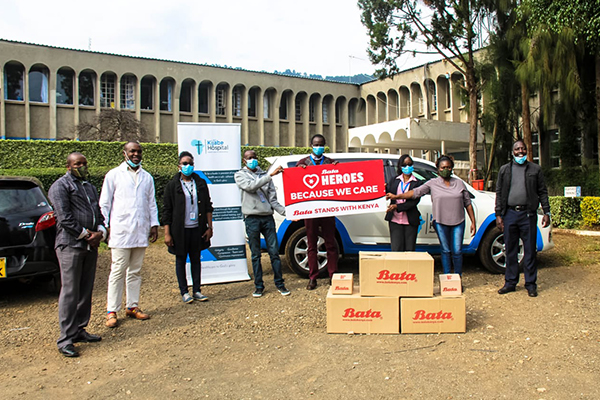
Employee engagement remains integral, facilitated through various avenues like departmental interactions and senior management’s town hall sessions. Bata ensures anonymous opinion-sharing through strategically placed suggestion boxes, overseen by a dedicated committee for redressal. In decision-making, employees are strategically involved through the sign-off process for the company’s strategy and key performance indicators (KPIs). This entails approval by the Chief Executive Officer (CEO), Chief Financial Officer (CFO), Chief Supply Chain Officer, and presentation to the Board of Directors.
The Corporate Social Responsibility (CSR) Committee, composed of board members and executive management, crucially reports back to the Board, meeting quarterly to review the sustainability plan and activities. These practices reinforce Bata’s commitment to ethical business, social responsibility, and sustainable practices.
Bata actively serves as a catalyst for sustainable development in the African continent by embracing eco-friendly practices, advocating responsible resource management, and adhering to relevant legislations.
















